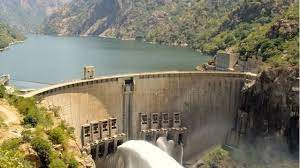Lagdo Dam Water Will Be Released Gradually To Prevent Flooding- NIHSA
The Nigeria Hydrological Service Agency, NIHSA, Tuesday, alerted Nigerians as Lagdo Dam in Cameroon begins release of water.
According to Mohammed, there is no cause for alarm as major flooding is not expected in Nigeria, however, States including Adamawa, Taraba, Benue, Kogi, Nasarawa, Anambra, Bayelsa, Delta, Edo, Cross River, and Rivers including the Federal Government should be well prepared to mitigate the impact of the water.
He said: “The Nigerian Hydrological Services Agency, NIHSA, wishes to inform the general public that the authority in Lagdo Dam in Cameroon has informed the Agency that the dam Management will begin regulated water releases at the rate of 100m³/s (8, 640,000m³/day) today 17 September 2024.
“The water releases are expected to increase gradually to 1000m³/s in the next seven days depending on the inflow from the upstream Garoua River, which is the main feeder into the reservoir and a major contributor to the Benue River.
“However, the dam managers further stated that the planned water releases will be gradual so as not to exceed the conveyance capacity of the Benue River system and cause major flooding downstream Nigeria.
“The spilling of waters from Lagdo Dam is expected to stop as soon as noticeable decrease in flow from the Lagdo reservoir.
“The Agency wishes to State that there is no cause for alarm as major flooding is not expected downstream Nigeria as the flow levels along the River Benue are still within the warning levels.
“Notwithstanding, it is highly imperative for all states that are contiguous to the river Benue system, namely; Adamawa, Taraba, Benue, Kogi, Edo, Delta, Anambra, Bayelsa, Cross River, and Rivers; the government at all levels (Federal, State, and Local Government Areas) step up vigilance and deploy adequate preparedness measures to reduce possible flood impacts that may occur as a result of increase in flow levels of our major rivers at this period.”
Meanwhile, NIHSA boss concluded by saying, “The Agency will continue to monitor closely the flow situation of the trans-boundary River Benue and the national inland rivers and steadily provide regular updates on water levels across major rivers to forestall further flood disasters.”





